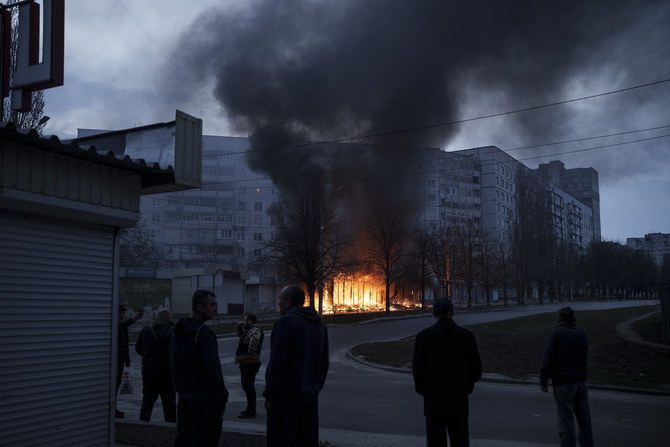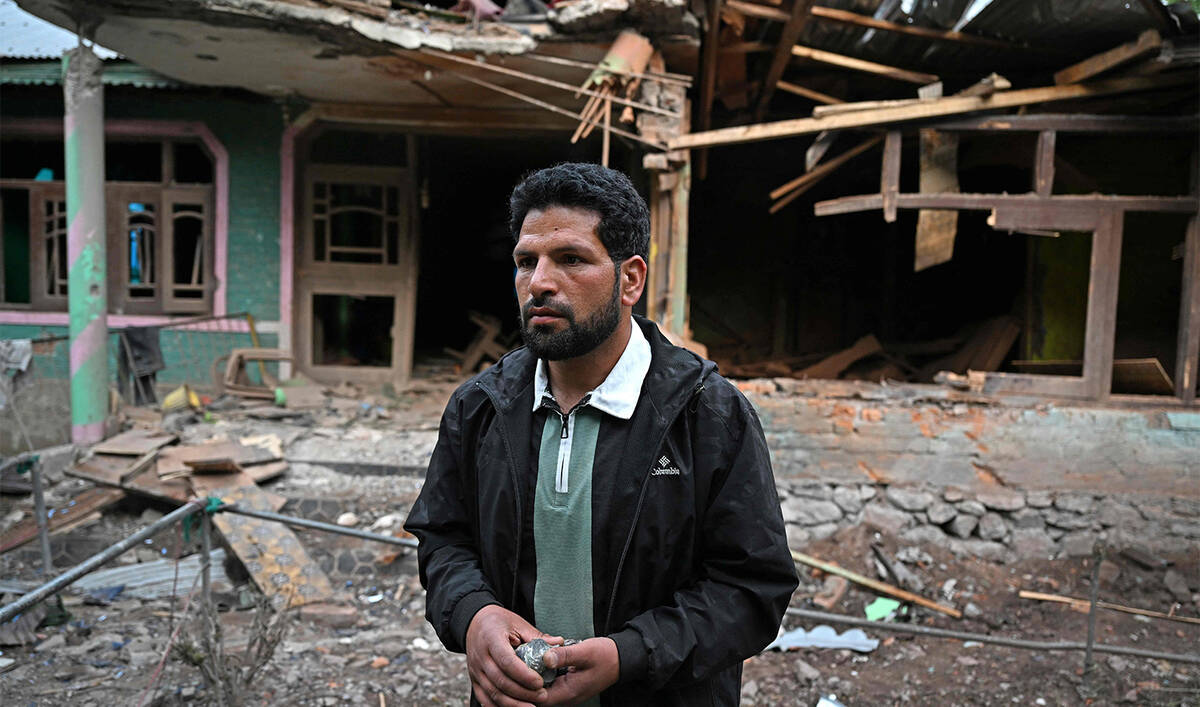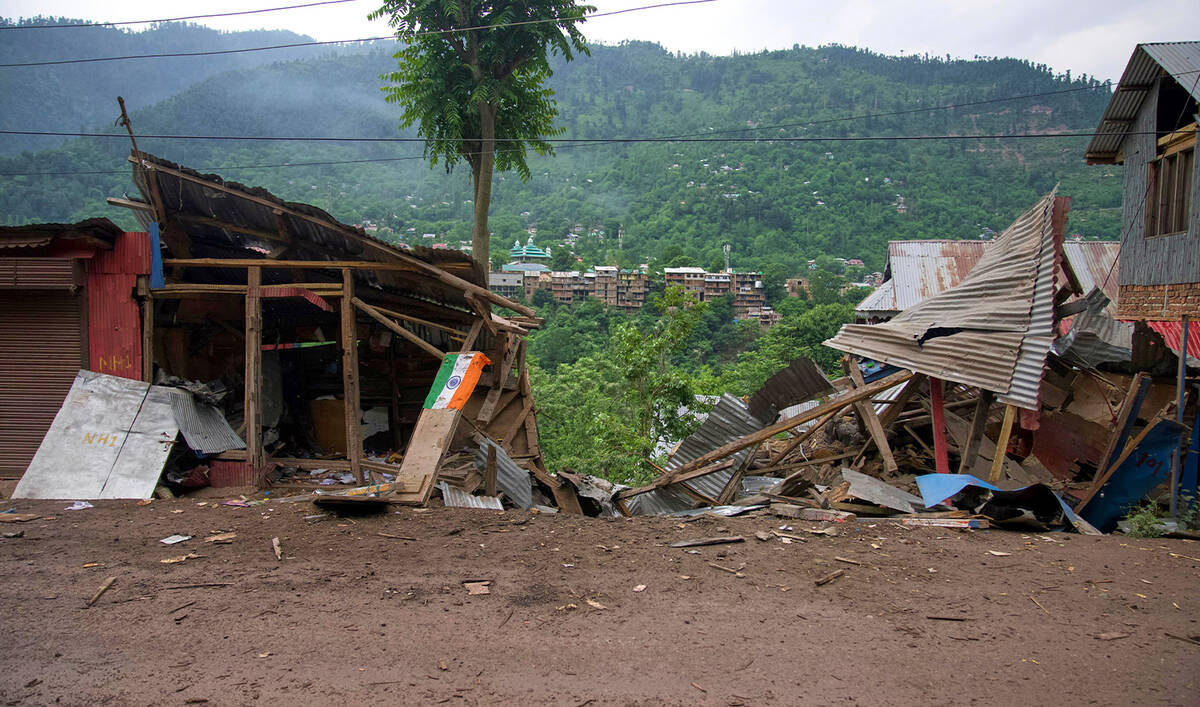LVIV: Russian President Vladimir Putin on Tuesday defended the war in Ukraine as a “noble” mission that would achieve its goals as his troops massed for a new offensive amid allegations of rape, brutality against civilians and possible use of chemical weapons.
Ukrainian officials urged civilians to flee eastern areas ahead of the anticipated offensive, while the battle for the southern port city of Mariupol was reaching a decisive phase, with Ukrainian marines holed up in the Azovstal industrial district.
Should the Russians seize Azovstal, they would be in full control of Mariupol, the lynchpin between Russian-held areas to the west and east. The city has already been laid waste by weeks of Russian bombardments and officials say about 20,000 people or more may have been killed.
Putin, speaking in Russia’s Far East at a ceremony marking the 61st anniversary of the Soviet Union putting the first man into space, spoke defiantly despite Western abhorrence at his actions and the imposition of wide-ranging international sanctions on his country.
Asked by space agency workers if the operation in Ukraine would achieve its goals, Putin said: “Absolutely. I don’t have any doubt at all.
“Its goals are absolutely clear and noble,” Putin said. “We didn’t have a choice. It was the right decision.”
He was due to meet his ally, Belarusian President Alexander Lukashenko, to discuss Ukraine and Western sanctions while there.
Putin has cast what he calls a “special military operation” as a confrontation with the United States which he says is threatening Russia by meddling in its backyard. The West says it is a brutal land grab of a sovereign country.
Since he sent his troops over the border on Feb. 24, about a quarter of Ukraine’s 44 million population have been forced from their homes, cities turned into rubble, and thousands of people have been killed or injured — many of them civilians.
Phosphorus
Ukrainian Deputy Defense Minister Hanna Malyar said the government was checking unverified information that Russia may have used chemical weapons while besieging Mariupol.
“There is a theory that these could be phosphorous munitions,” Malyar said in televised comments.
The governor of the eastern Donetsk region, Pavlo Kyrylenko, said he had seen incident reports on possible chemical weapons use in Mariupol but could not confirm them.
“We know that last night around midnight a drone dropped some so-far unknown explosive device, and the people that were in and around the Mariupol metal plant, there were three people, they began to feel unwell,” he told CNN.
They were taken to hospital and their lives were not in danger, he said.
President Volodymyr Zelensky had said on Monday night that Russia could resort to chemical weapons as it massed troops in Donbas for a new assault. He did not say if they actually had been used. The United States and Britain said they were trying to verify the reports.
Chemical weapons production, use and stockpiling is banned under the 1997 Chemical Weapons Convention. Although condemned by human rights groups, white phosphorous is not banned under the convention.
Russia’s defense ministry has not responded to a Reuters request for comment. Russian-backed separatist forces in the east denied using chemical weapons in Mariupol, the Interfax news agency reported.
Redoubling efforts
After their troops got bogged down in the face of Ukrainian resistance, the Russians abandoned their bid to capture the capital Kyiv. But they are redoubling their efforts in the east.
The governor of Luhansk region, Serhiy Gaidai, urged residents to evacuate using agreed humanitarian corridors.
“It’s far more scary to remain and burn in your sleep from a Russian shell,” he wrote on social media. “Evacuate, with every day the situation is getting worse. Take your essential items and head to the pickup point.”
A humanitarian corridor had also been agreed from Mariupol, Deputy Prime Minister Iryna Vereshchuk said.
Zelensky pleaded overnight for more weapons from the West to help it end the siege of Mariupol and fend off the expected eastern offensive.
“Unfortunately we are not getting as much as we need to end this war faster...in particular, to lift the blockade of Mariupol,” he said.
In an address to the Lithuanian parliament, Zelensky urged the European Union to impose sanctions on all Russian banks and Russian oil and to set a deadline for ending imports of Russian gas.
“We cannot wait,” he said.
The withdrawal of Russian forces from the outskirts of Kyiv brought more allegations of war crimes, including executions and rape of women.
United Nations official Sima Bahous told the Security Council on Monday: “We are increasingly hearing of rape and sexual violence.”
Kateryna Cherepakha, president of rights group La Strada-Ukraine, told the council via video: “Violence and rape is used now as a weapon of war by Russian invaders in Ukraine.”
Russia’s deputy UN ambassador denied the allegations. The Russian defense ministry said Ukraine’s government was being directed by the United States to sow false evidence of Russian violence against civilians despite what it said was Moscow’s “unprecedented measures to save civilians.”























